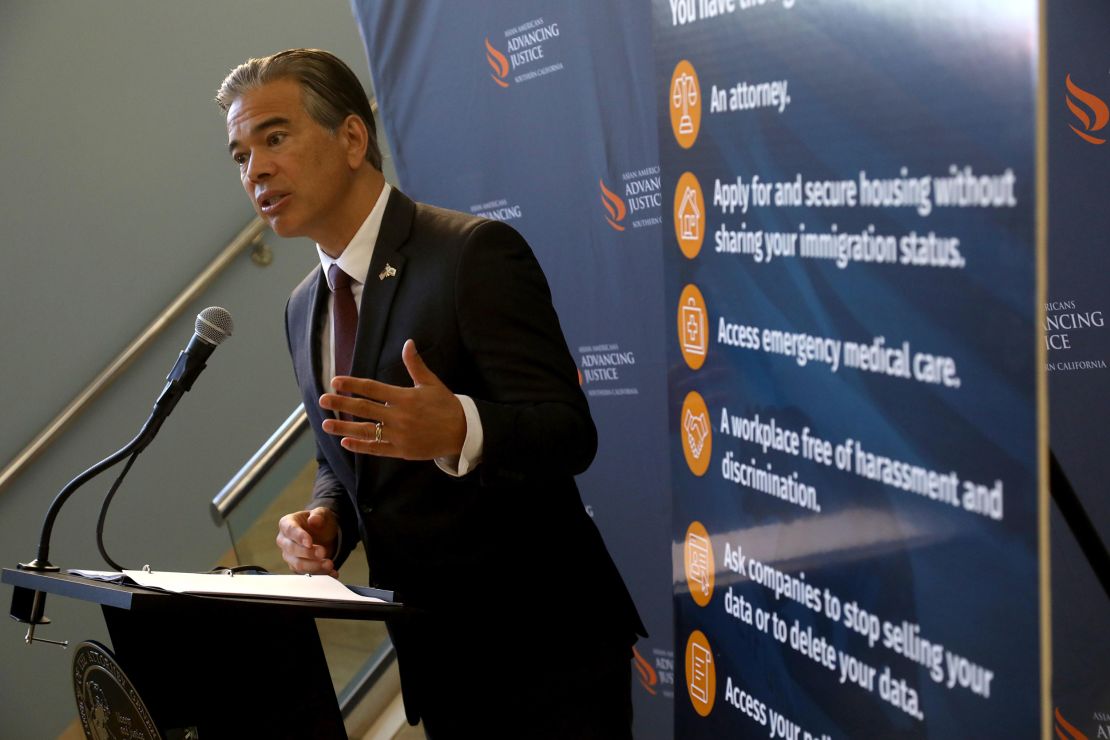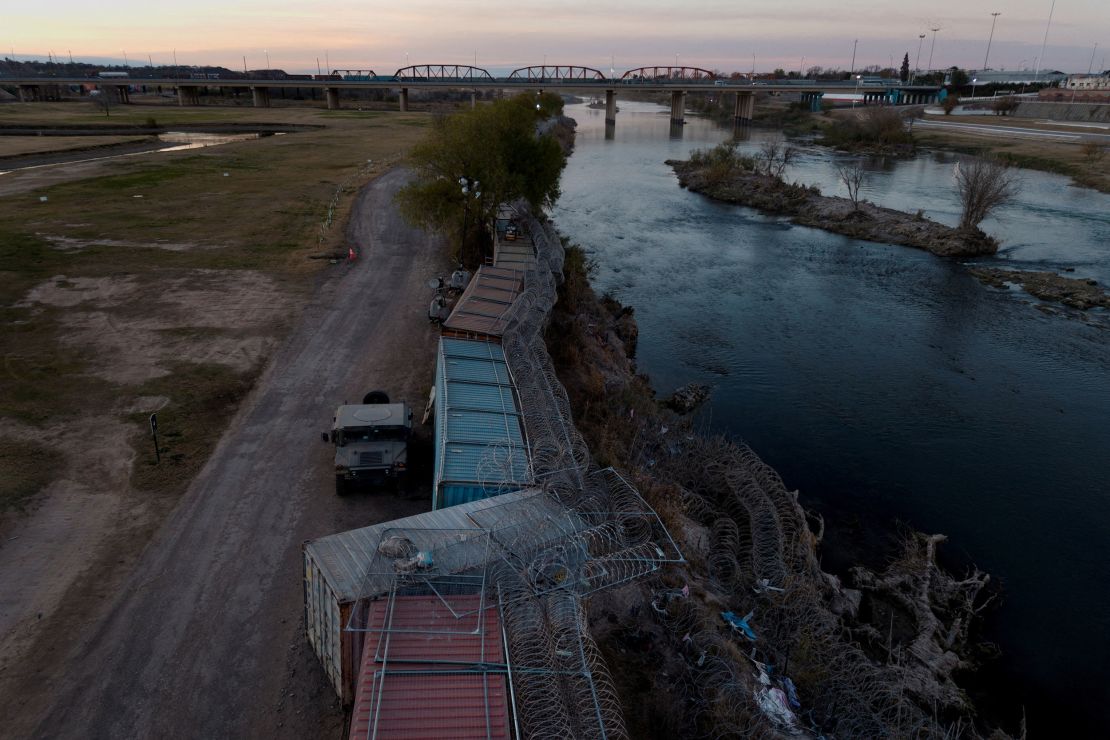State and local leaders across the country are bracing for a tidal wave of aggressive immigration policies and possible mass deportations that President Donald Trump has vowed to enact in the hours and days following his inauguration Monday.
Trump pledged to issue “close to 100” executive orders on Day 1 of his presidency, at least 10 of which will be related to a keystone of his campaign: immigration, an incoming White House official told CNN over the weekend.
Within hours of taking office, Trump signed a slate of immigration executive actions that will prompt an immigration crackdown. They include an executive action to try to end birthright citizenship, a constitutional issue that would need to be addressed via constitutional amendment or the courts. He also signed an order declaring a national emergency at the US southern border that would trigger deployment of additional Pentagon resources and the deployment of armed forces to finish the border wall.
During his inaugural speech on Monday, Trump reiterated his pledge to carry out mass deportations once in office.
“We will begin the process of returning millions and millions of criminal aliens back to the places from which they came,” Trump said.
The immigration actions – which are almost certain to be challenged in court – could create fear and confusion in cities with robust immigrant populations as everyone from school bus drivers to restaurant managers and church pastors will be left to wonder what to do if Immigration and Customs Enforcement comes knocking.
Indeed, within hours of Trump taking office, the American Civil Liberties Union took legal action over the new administration’s decision to shut down a border app – known as CBP One – that allowed migrants the right to seek asylum.
The ACLU requested an immediate status conference in an existing case against former President Joe Biden’s asylum restrictions along the US southern border, saying the turning off of the app deprives migrants of that right.
The ACLU, along with various civil rights and immigration rights groups, also sued the Trump administration on Monday over its attempt to end birthright citizenship, a central pillar of Trump’s immigration agenda. The lawsuit argues Trump’s action violates both federal law and the Constitution, and asks a federal court to temporarily and permanently block the order.
Nationwide, state and city officials have been making preparations for the inevitable immigration crackdown. And while many have plans in place to support migrant communities – and in some cases thwart federal immigration enforcement – others have expressed enthusiastic support for Trump’s planned policies.
Dozens of Republican governors last month released a joint statement “in support of President Donald Trump’s unwavering commitment to make America safe again by addressing the illegal immigration crisis and deporting illegal immigrants who pose a threat to our communities and national security.” The governors, including Florida’s Ron DeSantis, Texas’ Greg Abbott and Nevada’s Joe Lombardo, suggested they are prepared to mobilize National Guard resources to assist with enforcement.
Here are some of the ways that states are preparing for the looming immigration crackdown.
Colorado
Colorado law restricts state and local law enforcement from cooperating with federal immigration officials’ efforts to arrest, detain or gather migrants’ personal information. Even so, the state comprises of a patchwork of municipalities with differing stances on immigration enforcement.
In the capital, Denver, which has become a divisive battleground in the immigration debate, city leaders are bracing for aggressive ICE enforcement actions. Mayor Mike Johnston, who’s drawn the ire of Trump officials, said the city was the single largest recipient of migrants per capita of any city in the country last year after Texas Gov. Greg Abbott began busing migrants to Democratic-led cities as an affront to the Biden administration.
CNN obtained the playbook distributed to city staff in the event ICE agents attempt to enter city buildings and public spaces, such as hospitals. It lays out various scenarios and explains the steps employees should follow.
“It seemed pretty clear this was going to be ground zero for us,” Johnston previously said.
According to the policy playbook, if the ICE agent becomes hostile, or threatens the employee with arrest, employees should ask for the name and badge number of the agent, call the city attorney’s office and ask the agent whether the employee is free to leave.
The policy clearly states an employee should not try to stop a federal agent from arresting someone.
City officials have also developed a four-point plan for how to respond to anticipated ICE sweeps. The plan includes directives to collaborate with the federal government on the detention of violent criminals, similar to what was done during the Biden administration.
But collaboration largely stops there. Johnston said they won’t aid or support ICE operations in the city, and they will take the agency to court if it targets people in sensitive locations, such as schools and churches.
The Denver Police Department also has policies in place that prevent officers from asking witnesses or victims of a crime about their immigration status.
Other localities, however, have expressed support for the Trump administration’s planned immigration actions.
In Douglas County, home to nearly 400,000 people south of Denver, the Board of Commissioners voted on a resolution last week advocating for Trump’s plans to remove illegal migrants from the United States and requesting immigration enforcement be implemented in Colorado despite its reputation as a sanctuary state.
“It’s not compassionate to have a huge welcome sign on our state when there really is not a place or resources to support them,” Douglas County Commissioner Abe Laydon told CNN affiliate KMGH.
Illinois
Community leaders and law enforcement in Chicago are fielding concerns from migrant residents who fear they may be targeted by ICE in their places of work, school and worship.
Gov. JB Pritzker expressed his support for migrant families in a social media post Monday but also shared resources about what emergency plans families should have in place. The emergency checklist included gathering vital documents and choosing a caregiver to step in if a child’s parents are detained.
The situation is “chaos,” the governor told reporters Monday, saying the federal government has not communicated its plans.
“We can’t stop Homeland Security from coming into the state of Illinois; they are allowed to do that,” Pritzker said. “Indeed, we want them to come into our state when they are doing things that are lawful, when they are doing things that are consistent with the values of the American public. We are not standing in their way. We are standing up for the people of Illinois and make sure we are not letting them be taken advantage of.”
Chicago Public Schools sent a letter to families reassuring them the district has policies in place to protect students and staff from immigration enforcement. That includes policies passed by the Board of Education in November that prevent schools from assisting ICE and bar ICE agents from CPS campuses unless they have a criminal warrant.
The school district is providing families with “Know Your Rights” trainings and has shared information about legal resources available for immigrants and refugees.

Lincoln United Methodist Church, which serves a large Hispanic congregation and has been known to provide migrants sanctuary, has canceled in-person Spanish services out of fear of ICE raids, the Rev. Emma Lozano said. The Spanish services will be held virtually and English services will continue in person.
The Illinois Restaurant Association has been fielding calls from members worried ICE sweeps may target their kitchen and service staff. Association CEO Sam Toia called foreign-born workers the “backbone” of Chicago’s hospitality industry and said he has encouraged businesses to ensure their workers have the proper I-9 employment eligibility forms on hand.
“Make sure all your folks that are working – and I’m sure they have – have the documents in place, and if ICE inspectors come in, that you comply with them,” Toia said, relaying what he is telling restaurants: “Please comply with the law, just like you would if a health inspector came in.”
California
The Trump administration is teed up for a tense clash with California Gov. Gavin Newsom and other state leaders who have for months been planning measures to shield the state’s progressive policies, including immigration protections, against the incoming president.
California Attorney General Rob Bonta on Friday reiterated that his office supports immigrant communities and reminded residents that state law enforcement agencies are prohibited from “investigating, interrogating, detaining or arresting persons for immigration enforcement purposes.”
“In light of the president-elect’s xenophobic rhetoric and the uptick in hostility toward immigrant communities that we anticipate, we’ve issued updated guidance and resources for law enforcement, prosecutors and victims of hate crimes,” Bonta said in a news briefing.

Several large California cities, including Los Angeles and San Francisco, have positioned themselves as sanctuaries for migrants. Both cities have ordinances in place that bar city employees from aiding ICE unless required by federal law.
Just weeks after Trump was reelected, the Los Angeles City Council unanimously voted to adopt a “sanctuary city” ordinance. The Los Angeles Unified School District joined, reaffirming its policy that bars school personnel from voluntarily cooperating with immigration enforcement or sharing information about the immigration status of students and families with immigration agencies.
LA School Board president Jackie Goldberg, before retiring last month, also said the district will “aggressively oppose” any effort to create federal laws that require school districts to comply with immigration enforcement actions.
“We know what’s coming. They’ve said what’s coming, and we want to tell our students and their families and all of our personnel that you are welcome here,” Goldberg said in November.
Bonta has promised to challenge any federal laws or actions that his office deems unlawful.
“If it’s unlawful, we’ll see you in court, and we’ll stop you,” Bonta said.
Iowa
Iowa Gov. Kim Reynolds on Friday ordered state public safety and corrections officials to fully cooperate with federal immigration authorities.
In a memo Friday to the leaders of the Iowa Department of Public Safety and the Department of Corrections, the Republican governor mandated the agencies assist with administrative and criminal investigations, contact federal authorities when they suspect immigration law violations, and honor detainer requests from the Department of Homeland Security.
The directive also requires state agencies to facilitate custody transfers to immigration authorities.
In April 2024, Reynolds signed an immigration enforcement bill into law that allows state and local police to arrest undocumented immigrants who illegally reenter the country.
New York
Trump and his administration may have an ally in New York Mayor Eric Adams, who has been outspoken about the city’s migrant crisis and said last month he is open to working with Trump.
“The American people have communicated with us loudly and clearly: We have a broken system. They want it fixed. We need to fix our immigration system. We need to secure our border,” Adams said. He added: “I’m not going to be warring with this administration. I’m going to be working with this administration.”
Adams, who was federally indicted on public corruption charges under the Biden administration, has called for changes to the city’s sanctuary policies, some of which have been in place since the 1980s.
As city officials wait to see how the mayor will meet Trump’s immigration mandates, New York City Public Schools have been preparing their staff for potential run-ins with ICE agents.
The largest school system in the country sent a memo to school principals this month reminding staff that ICE enforcement officers are not permitted access to school grounds “without proper legal authority.”
The letter also stressed to principals that all children in the city have a right to an education regardless of immigration or asylum status and that the system does not collect information about any student’s immigration status.
Thousands of migrants began to arrive in New York City in the summer of 2022 after being bused north from the Texas border. Although the school system does not track immigration status, nearly 45,000 migrant children have enrolled in the city’s public schools since July 2022, according to the city’s Department of Education. A department spokesperson told CNN additional resources will be available to staff and families, including several “Know Your Rights” trainings.

Texas
After bitterly feuding with the Biden administration over its policies at the US southern border, Texas officials may be emboldened by the arrival of an ally in Trump in the White House.
The state, which is among the busiest regions for migrant crossings, has in recent years been overwhelmed by record surges in immigrant arrivals. In retaliation, Gov. Greg Abbott launched Operation Lone Star in 2021 in which the state bused and flew tens of thousands of migrants to Democrat-led cities – an act of retaliation against the Biden administration that drew praise from Trump.
As Trump was being sworn in Monday, workers in Texas were installing more buoys along its floating barrier in the Rio Grande in an effort to prevent migrants from making water crossings.

“I look forward to continuing to work closely with President Trump to secure the border,” Abbott said in a post on X. “AMERICA IS BACK!”
CNN’s Priscilla Alvarez, Nic F. Anderson, Nayeli Jaramillo-Plata, Kaitlan Collins, Tami Luhby, Paula Reid, Samantha Waldenberg and Artemis Moshtaghian contributed to this report.


















